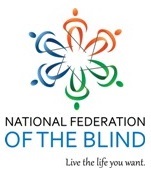I was so honored to receive the prestigious National Federation of the Blind Educator of the Year Award at our 2004 convention in Atlanta. Such an occasion is an extremely humbling experience, but in my case, it also proved to be a reflective one as well. Leading up to the convention and after receiving the award itself, I began to think about some of the experiences/strategies that I thought have made me an effective graduate and teaching assistant, guest lecturer, assistant professor, and now a tenured professor. The purpose of this article is to share with you at least three strategies that I have learned after over twenty years of teaching, and I hope that they will facilitate your progress as an active, vital faculty member no matter what your educational landscape looks
like.
Stay Connected
Many of us who are blind know that some of our well-meaning friends and colleagues, and even family, would like to keep us isolated so that we won’t “hurt ourselves.” Often, what they really are trying to do is keep us from hurting them in some way. However, many of us, if we are honest, tend to favor isolation ourselves because it’s just not worth the hassle sometimes to do otherwise, we say. I strongly believe that as blind educators, we cannot afford to be isolationists: independent thinkers, yes, but isolationists, never. I believe this because much of the perception about what we do in our classrooms is based on what we do or do not do outside those classrooms. One way to deal with those perceptions is to stay connected to our communities, departments, neighborhoods, etc. This means, specifically, participating in social events, field trips, commencement exercises, community activities, cultural and ethnic events, and many others. Many people want to believe that we are just like everyone else, and that we should act accordingly. I also believe that we should get involved with aspects of our community not necessarily related to blindness or disabilities.
Working with the Red Cross, the Rotary Club, the Boy and Girl Scouts, church groups, and other groups where blindness is not the central focus of our involvement are just a few examples. Just because we are blind, we should not have to be “super people.” That is to say, we should not have to do more than any other faculty member to prove ourselves necessarily, but it is important that we let our students and colleagues know that we live balanced and connected lives. I take my boss out for a drink sometimes, and when it’s my turn to pay, I do.
Consistent Correction
In many cases, we are the only blind educator someone knows or will ever know. This in itself can lead to misconceptions and perceptions, and sometimes blatant ignorance on their part. We all should seize the opportunity to correct when necessary, always with the idea of teaching others about what it means to be blind. Recently, one of my colleagues of twelve years told an offensive joke in a faculty meeting. Not only did she offend me, but she offended several others. Even though we had worked on committees together and her office is across the hallway from mine. I thought it was necessary to correct her directly, and I confronted her as friendly and as diplomatically as possible. We are the human delete buttons and erasers for those unfamiliar with blindness, and if they are to respect us in the classroom, they must respect us outside as well.
Don’t Hesitate to Direct
By direct, I mean to lead and take your responsibility as a faculty member seriously. Often, down deep inside, many of our colleagues don’t feel as if we can take the lead. For example, chairing the search committee, leading in faculty discussions and meetings, directing dissertations, even leading in a field trip of some kind. I speak as one who has done all of these, and they go a long way toward closing what I call the “respect/expect gap.” What I mean is, some people can respect you but keep their expectations lower than their respect for you. My challenge to you is, when it’s your time to lead, although there may be some trepidation, find a way to do it as effectively as you can, don’t shirk your responsibility, and never use your blindness as an excuse not to be able to get the job done.
I thought it would be interesting to conclude my musings with a scenario I believe encompasses all three approaches. One way to stay connected with your colleagues is to break bread with them, however, we all know that invitations to peoples’ homes or unfamiliar surroundings can be interesting at best. Even though you want to play a vital part in both the planning and implementation of the social event, people feel obligated to keep you safe and to serve you. So why not invite them to your place? Why not throw the party? Why not be the host? You then have them on your own territory, where you can arrange things to correct any slight misconceptions that may have been building over a period of time. You can demonstrate your leadership outside the classroom. What an effective way to help close the respect/expect gap.
- Printer-friendly version
- Log in or register to post comments



